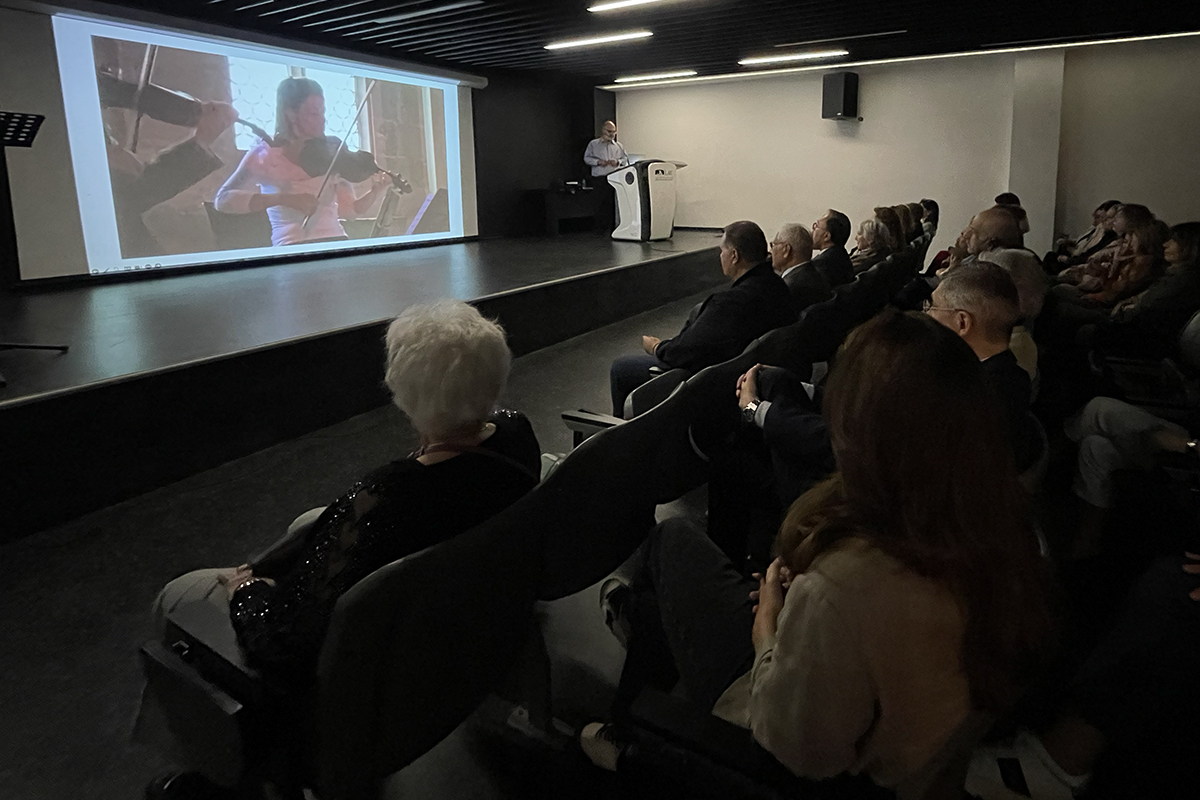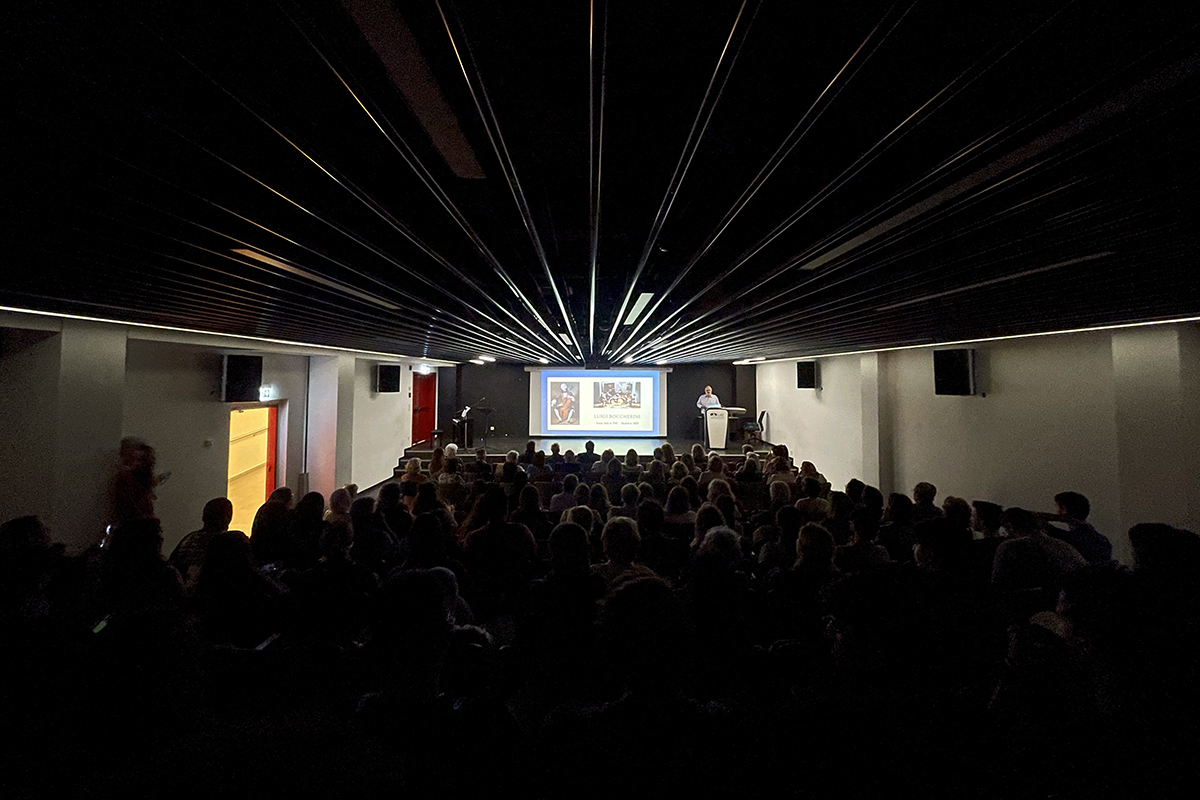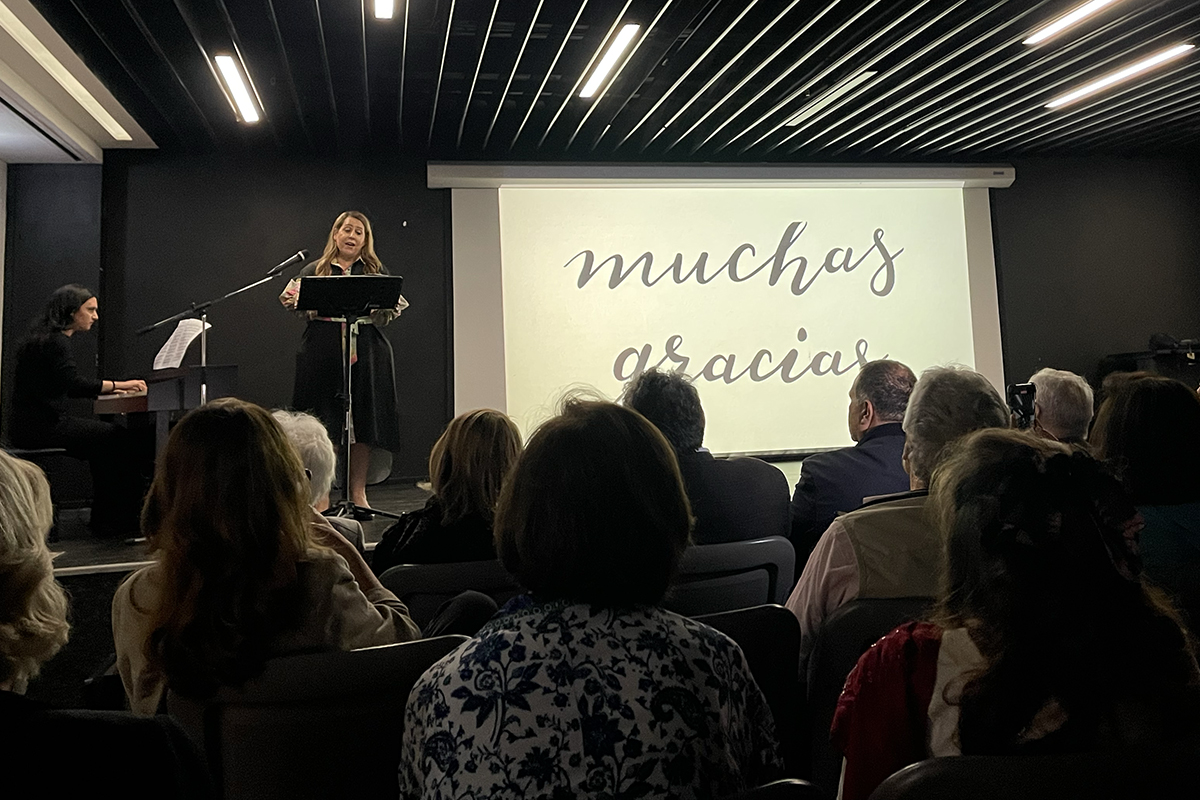Taking LAU on a Musical Journey Through Spain
Dr. Reem Deeb showcases the interdisciplinary approach of LAU’s curriculum to understanding music and its global context.
In a recent exploration of musical traditions, Dr. Reem Deeb, a lecturer at the School of Arts and Sciences who specializes in voice performance, history and literature, recently invited music enthusiast and neurosurgeon Dr. Georges Haddad to shed light on the rich heritage of Spanish musical styles in a talk held at the Beirut campus.
The event was organized by the Department of Communication, Arts and Languages in collaboration with Vision of International Awareness (VIA) NGO on April 3 as part of LAU’s World Music Class, which Dr. Deeb will be teaching for the first time, that delves into the cultural contexts shaping musical expression globally.
Throughout the course, students learn about various musical elements, historical classifications of instruments, and the influence of social change on musical practices. According to Dr. Deeb, this interdisciplinary approach fosters a nuanced understanding of music as a reflection of societal dynamics and culture.
“Many students, staff and teachers are not aware of the non-classical or ethnic music of other countries, which is very tied up with their different traditions, rituals and ceremonies,” she said.
In the course, therefore, students not only grasp the fundamentals of music but also gain insights into the cultural and academic dimensions intertwined with music and one’s identity. Dr. Haddad’s lecture served this very specific purpose as it aimed to acquaint students with a panorama of musical heritage across Spain.
His interactive presentation on unique Spanish instruments like castanets and maracas, diverse dances such as Habanera, Flamenco, and Fandango, and various scales, modes, and rhythmic patterns brought a piece of Spain to the attendees, breaking down barriers and providing them with a cultural experience that can be appreciated and enjoyed regardless of their backgrounds.
“It’s important to highlight the influence of historical events on musical developments,” noted Dr. Deeb, citing the example of Ghanaian postal workers who turned routine tasks into music using everyday objects as instruments. This musical tradition arose naturally in response to the repetitive nature of their work, which also became a means of social interaction and collective participation among the workers.
At the end of the lecture, Dr. Deeb, accompanied on a Roland Clavinova piano by senior student Cecile Kallab who is majoring in education with a performing arts minor, performed La Paloma by renowned Spanish composer Sebastián Yradier.
In addition to teaching the course, Dr. Deeb has planned an array of upcoming performances on the occasion of LAU’s Centennial to emphasize the vibrant arts and cultural scene at LAU.


